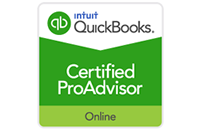As your business revenue increases, a natural inclination is to share this with your employees. Not only does it boost retention, but it also increases employee morale and productivity because they know that you value them as part of the team. Many people try to do this through salary increases or bonuses, but there may be another way that’s more beneficial to both you and your employees.
“Cash” Benefits
If you asked employees whether they want cash or benefits, most would probably choose cash. However, that’s a bit of a misnomer because the vast majority of us don’t get paid in “cash,” we get paid via payroll, which is then taxed. Thus, when you decide to increase their salary, or provide a bonus, it’s both costing you more and giving them less.
Let’s use an example: say you decide you’re going to give each employee $100 per week. Well, on top of that $100, you’re going to pay an additional 6.2% in Social Security taxes on behalf of the employee, plus another 1.45% for Medicare. You’ll also end up paying for additional premium on your workman’s compensation insurance because that coordinates with payroll. Thus, that $100 ends up being closer to $110. While that sounds pretty minimal, that extra $10 per week ends up being $520 per year—for each employee. Even though you’re paying more, so is the employee.
In this same scenario, the employee isn’t getting $100, even though you’re realistically paying more than that. Depending on his/her effective tax rate, the true take-home total is closer to $80 at a 20% tax bracket, and that dips down to $70 at the 30% or higher bracket. Unfortunately, the additional income can also affect qualifications for larger matters, like qualifying for tax credits, assistance with paying for health insurance, and other similar programs.
Other Benefits
If you choose to offer your employees options like contributions toward a 401K, or health/supplemental benefits, you can actually maximize your money on both sides. Because these don’t officially count as income, you avoid the margin lost to taxes for the employer and the employee. Additionally, as a business owner, that previously referenced $100 is going to cost you less than that because it will qualify as a tax deduction to the business. For your employee, they’ll not only get to use all of that $100 on a financially responsible choice, but also they’ll be able to pre-tax anything they contribute above and beyond that. So, if they all decide to add an extra $50 each week to their 401K, they’re really only changing their paycheck by $35-$40—not $50. In turn, this saves the business owner more on payroll taxes.
So, if you’re looking for a way to reward your hardworking staff, talk to an experienced professional who can advise you of the most mutually beneficial option(s). At ENSO Accounting, we’re help with much more than tax preparation, and we have to resources to assist you in whatever avenue you choose. Let’s make a plan together!




